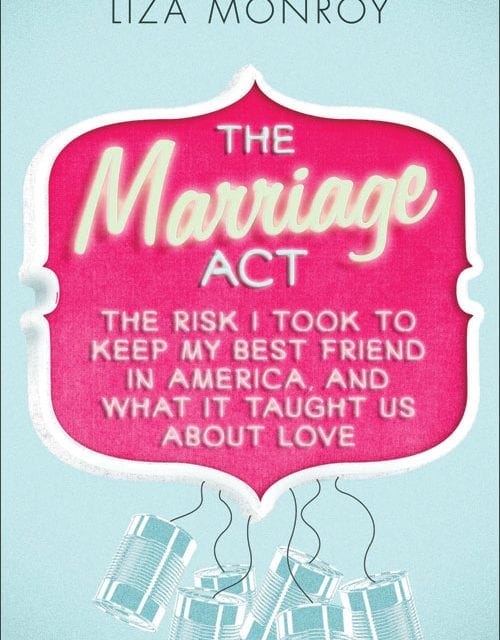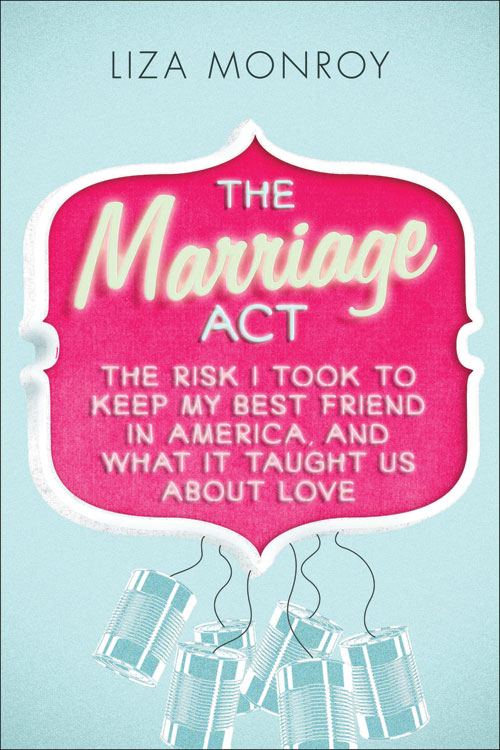The Marriage Act: The Risk I Took to Keep My Best Friend in America, and What It Taught Us About Love by Liza Monroy (Soft Skull Press 2014) $16.95320 pp.
What makes a marriage work? Is it effort, honesty, trust, acceptance, love? Or, as in The Marriage Act, should you strive to marry your best friend … even if it’s illegal?
Throughout her life, Liza Monroy says there’ve been three important men: her father; her boyfriend, Julian; and her gay best friend, Emir. But she’d barely seen her father since her parents divorced when she was 6. Julian was in Manhattan, far from Monroy’s L.A. home and, though they were engaged, their relationship was rocky. Emir, however, was nearby (three blocks away) and Monroy saw him whenever she needed him. And she needed him a lot.
They met in college, Emir in the U.S. on a student visa, from a country Monroy calls Emirstan. But in the weeks following Sept. 11, 2001, when just being Middle Eastern was cause for suspicion, Emir’s visa was about to expire.
By that time, Monroy’s engagement had fallen apart. She was afraid of love, but more terrified of being alone. She asked Emir to marry her, which seemed like a great solution: Emirstan was intolerant of gay men and deportation was dangerous. Marrying her gay BFF would allow her to “practice” at marriage (never mind that the Immigration and Naturalization Service disallowed marriage for a green card’s sake … and that Monroy’s mother was an INS agent).
But what, exactly, makes a marriage? What characterizes it? If it’s love, they had that; if it’s needing one another, they had that, too. Did marriage have to be about sex and babies, or is it possible to redefine it?
The Marriage Act should be a good book — a unique chronicle of a gutsy, illegal act that, accidentally, turned out well for all concerned. And it is good, just not as much as I’d hoped.
With angst that would make Woody Allen proud (and a near inability to keep secrets), Monroy writes of stress, misgivings and sabotaging plans to keep her gay pal stateside. That would be tolerable, perhaps even madcap, if it wasn’t so repetitive and fussy.
Her many blame-the-parents passages and falls-flat attempts at humor don’t help; mix in occasional, bumbling sweetness and not-so-subtle lessons, and you’ve got a memoir that’s passable when it could have been great.
— Terri Schlichenmeyer
This article appeared in the Dallas Voice print edition June 13, 2014.


